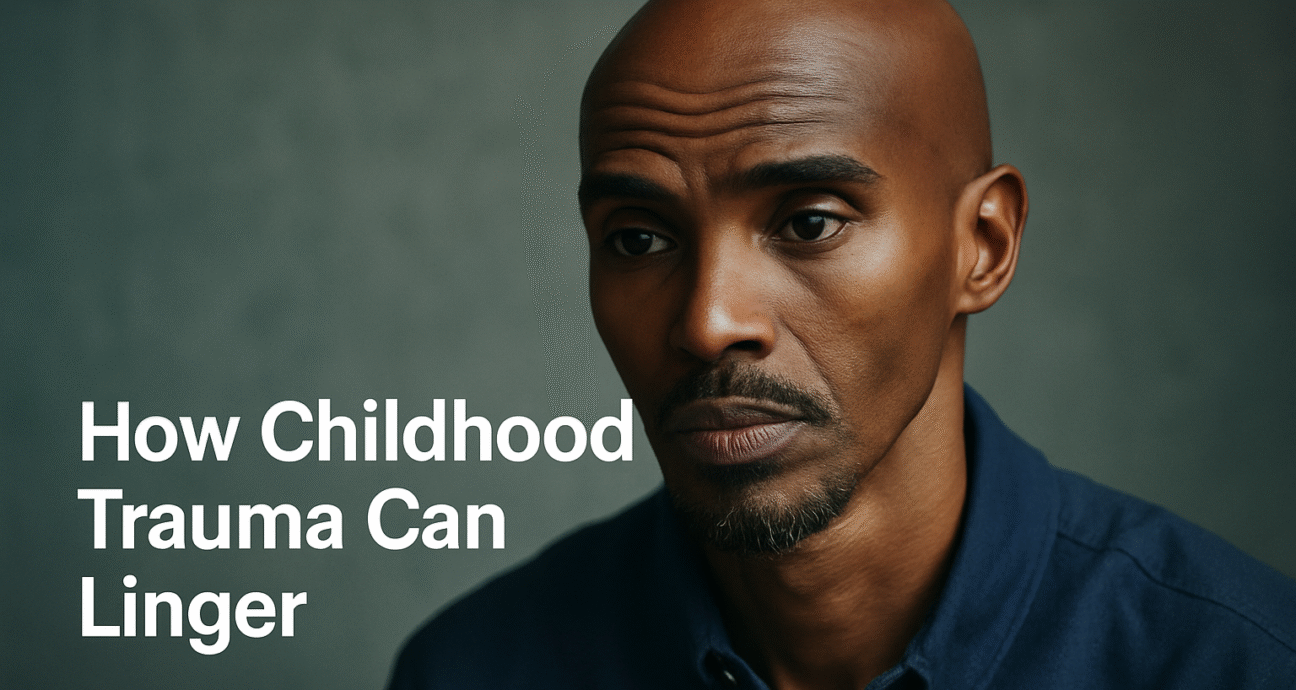How Childhood Trauma Can Linger

Childhood trauma can have long-term psychological effects, even when individuals go on to achieve outward success in adulthood. The case of Sir Mo Farah is a strong example of how early life experiences can continue to influence mental well-being and sense of identity.
As revealed in a BBC documentary, Sir Mo Farah was born Hussein Abdi Kahin. As a child, he was trafficked to the UK and forced to assume the identity of another boy named Mohamed Farah. At age 12, he enrolled in Feltham Community College with little prior education. During his time there, he confided in his physical education teacher about the abuse he was experiencing and how he had arrived in the UK.
Following this disclosure, social services intervened. He was removed from the household that had trafficked him and placed with a foster family. This marked a turning point in his life. Despite these changes, he remained separated from his biological family and was unaware he had a twin brother still living in Somalia. He eventually became one of the most successful British athletes, winning multiple Olympic titles.
Although his living conditions improved, the emotional effects of his early experiences persisted. Farah later reflected on how his childhood trauma affected his adult life. He described moments when he would watch his children and think about what he was doing at their age—often recalling the overcrowded, difficult conditions he had lived in.
This pattern of mentally revisiting past experiences is known as cognitive immobility. It refers to being psychologically stuck in earlier stages of life, especially traumatic ones. This can happen consciously or unconsciously and may influence how a person feels about their safety, home, or relationships—even if their current environment is safe and stable.
Farah’s decision to move his family to Qatar, where he feels it is safer for his children, may reflect how his early trauma continues to shape his perception of safety and belonging.
He also spoke about how his wife noticed his emotional distress and encouraged him to seek therapy. Although he did not pursue formal treatment, Farah described running as his form of therapy and credited his wife and children for helping him confront his past.
Understanding trauma and its lingering effects is essential for healing. The key elements of cognitive immobility include:
- Repeatedly revisiting or mentally reconstructing past events,
- Emotional fixation on previous stages of life,
- Disruption in a person’s sense of identity and stability.
Recognizing and addressing unresolved trauma—ideally with the support of loved ones and mental health professionals—can help individuals regain emotional balance and build a healthier future.




